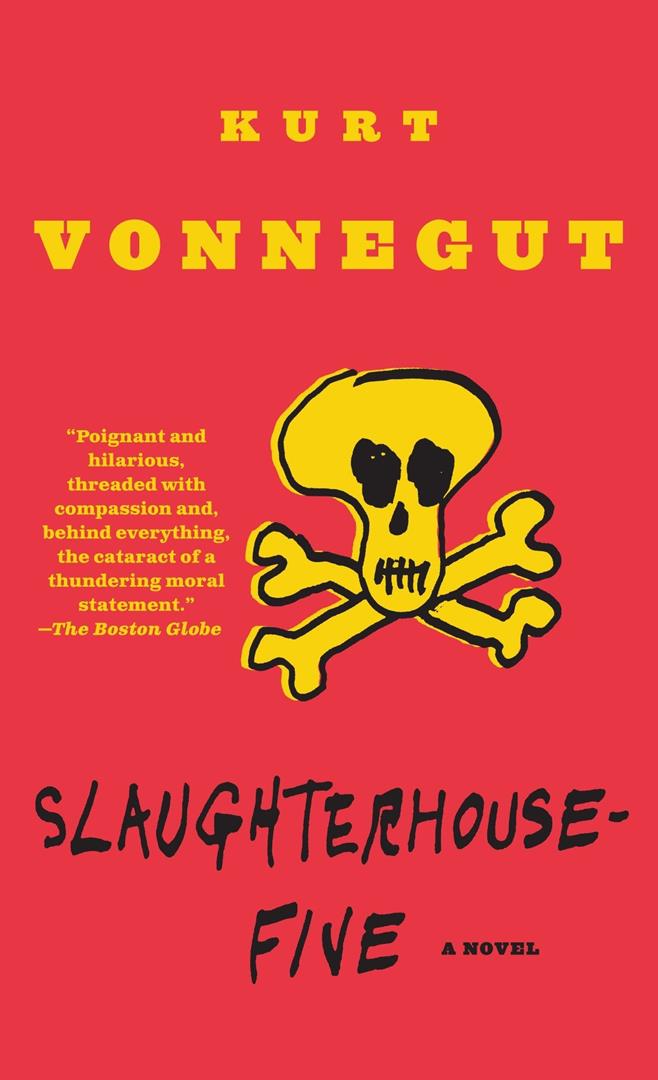Slaughterhouse-Five is a literary classic by Kurt Vonnegut Jr. that wields absurdism to try to explain the unexplainable — using themes like war and aliens. It’s deeply moving, confusing, and will leave you with a new perspective on the world although you won’t be sure how it happened. Strap in, folks, this book is a wild ride.
The story follows our protagonist Billy Pilgrim as he’s conscripted into World War II. During his service, he finds himself unstuck in time, witnessing all of his life experiences at once with his consciousness flitting in and out of different years. One moment he’ll be fighting in the war, the next he’ll be in a human zoo after being abducted by aliens from a planet called Tralfamadore. Wait, what?
This mishmash of ideas is jarring, yes, but it’s through this chaotic state that the nature of war is revealed. Humans on both sides of the war believe in justice, and yet we see a soldier executed by firing squad for taking a teapot from a pile of rubble. Children are meant to be protected, and yet young men not so far from childhood are sent to the front lines to risk their lives. Civilians have no part in battle, and yet the entire city of Dresden is decimated by firebombing in a matter of days. The prose is heavy in black comedy and satire, showing us the absurdity of the violence we see. The death and survival of characters seem to be driven by unknown factors throughout Slaughterhouse-Five that can’t be reconciled with because they make no sense. Billy survives the war by luck alone, not by being prepared or skilled, with the questions remaining: Why him? Why anyone? How does one come to terms with why one man lives and another dies? What’s the meaning behind suffering?
Billy as a character is much like a kicked puppy, and I mean that in the kindest way. He’s ready to give up, unsure of where he fits in the world, and passively accepting of what’s happening to him both on the battlefield and while jumping through time. Through him we see the effects of war. If you decide to interpret the sci-fi elements of the book as imaginary and therefore he’s gone mad, then the novel can be a metaphor for post-traumatic stress disorder. However, an even more tragic possibility is interpreting the sci-fi elements as fact and seeing how the war has made Billy not bat an eye at the existence of an advanced alien species. He questions nothing. He’s seen worse.
Slaughterhouse-Five is a novel that explores the mysteries of war and why human beings fight each other in nonsensical ways for nonsensical reasons. It’s a novel that questions if we have any control over our fate or if we’re proverbial leaves in the wind. It’s a novel that provides more questions than answers — questions that are still relevant in our increasingly complex world. So it goes.
Chandy is a biology major/chemistry minor who's been a staff writer, Arts editor, and Managing Editor at The Cascade. She began writing in elementary school when she produced Tamagotchi fanfiction to show her peers at school -- she now lives in fear that this may have been her creative peak.


